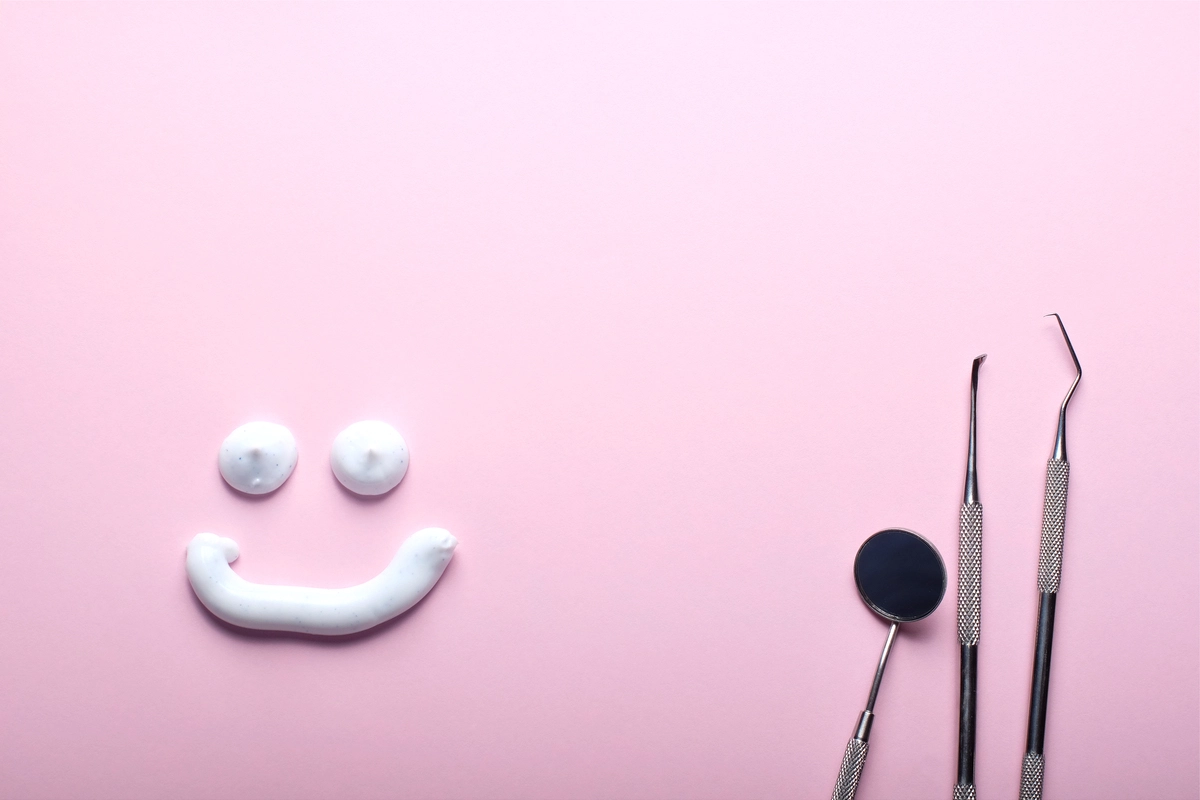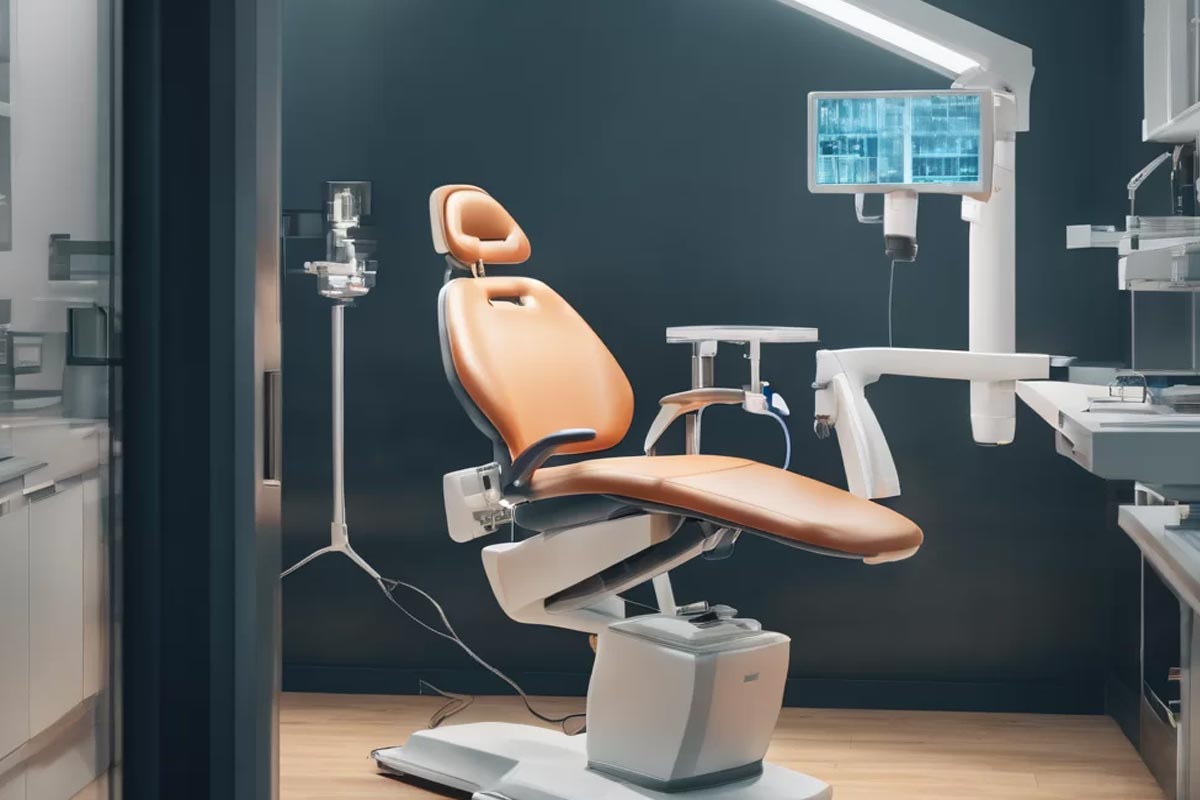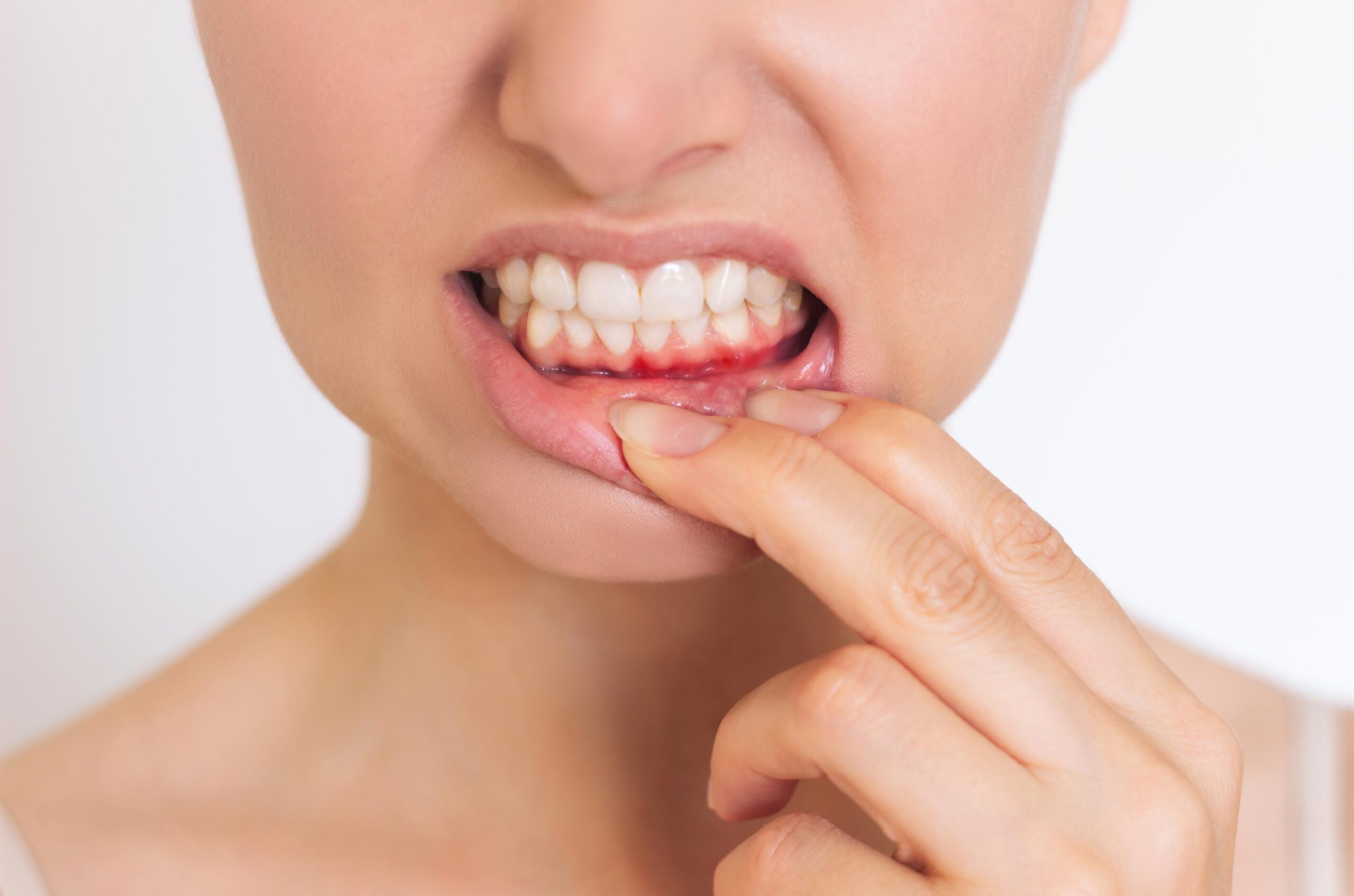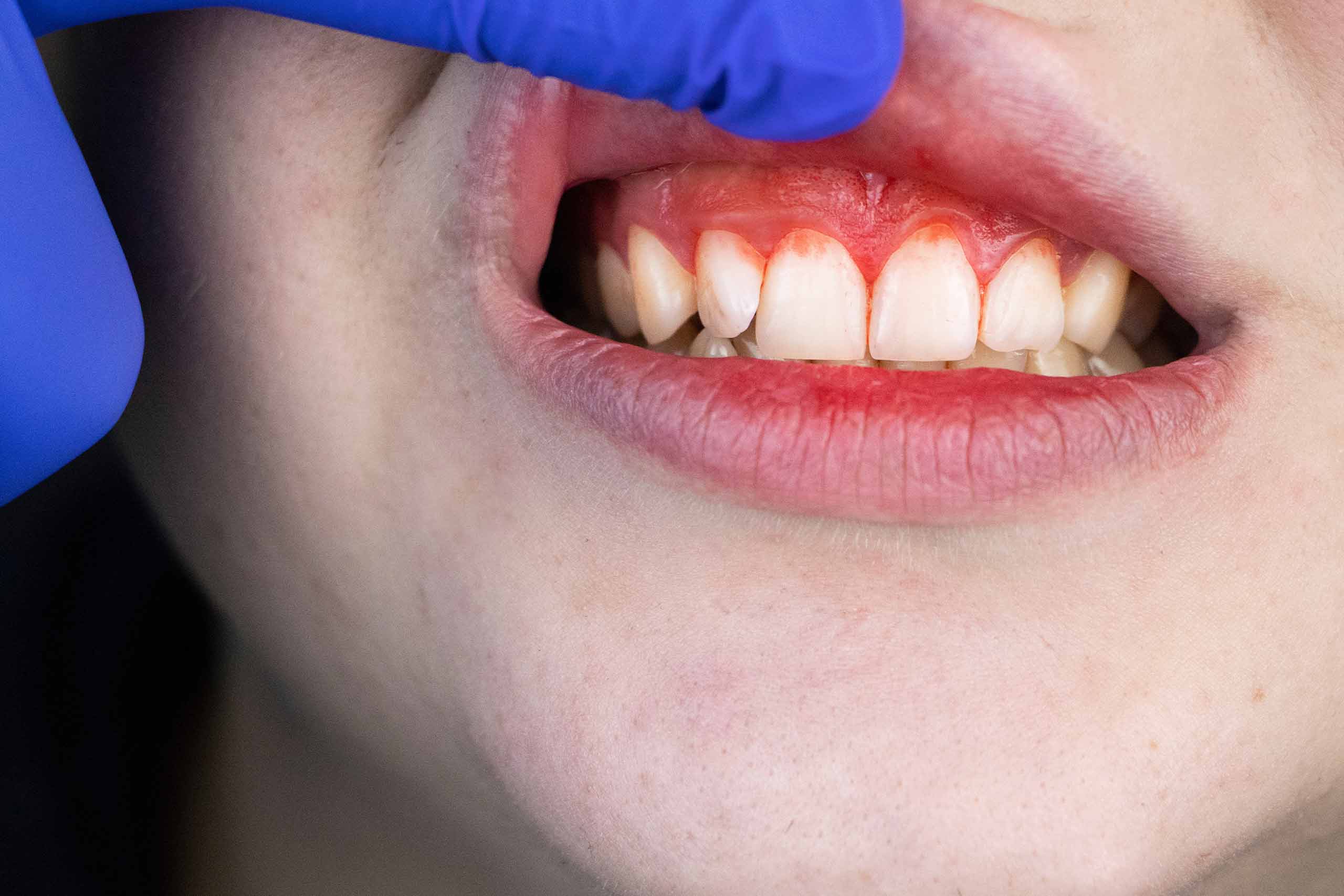10 Effective Ways To Treat Gingivitis At Home

If you suspect that you have gum disease or have recently been diagnosed with early-stage gum disease (gingivitis), you might be wondering whether there is a way to treat gingivitis on your own without heading to the dental clinic.
You will be happy to know that there are indeed many ways for you to treat gingivitis in a cost-effective and efficient way, in the comfort of your home.
This article will quickly cover the following:
- How to treat gingivitis without a dentist
- Natural home treatments that work for gingivitis
- What does not work to treat gingivitis
- Foods that will help you reduce gingivitis
- When you should head to the dentist
- Why you should still head to the dentist for gingivitis treatment
- How to prevent recurring gingivitis.
Understanding Gingivitis
Gingivitis is gum disease in its early stages. Gum disease is a common oral health condition that can affect the gums, tissues and bones supporting the teeth. If left untreated, it can lead to serious complications such as tooth loss. Treating late-stage gum disease can be expensive. The good news is that early-stage gum disease or gingivitis is both reversible and treatable at home.
While it is still important to seek professional dental care for gum disease, I understand the hesitancy in seeking professional dental care as the first resort. In fact It is not uncommon for patients to want to avoid visiting a dentist.
This is why I have written this comprehensive DIY-your-gingivitis article to help guide you to relieve early-stage gum disease naturally, with reliable and professional dental advice. Please note that these suggestions are not a substitute for a dental consultation, and should be used in conjunction with regular dental visits.
Dental Expert Recommended: Steps to Treat Gingivitis at Home Without a Dentist
Before you rely entirely on natural remedies to combat your gingivitis, there are some time-and-tested (dentist approved) methods that can help. These methods are especially helpful if you are waiting for your next dental appointment or are attempting to treat gingivitis without a dental professional.
Use Antibacterial Toothpaste: Using antibacterial toothpaste can help you fight plaque all day (and night) long. The effect of the toothpaste lasts long after you have completed your oral hygiene routine. If you are looking for a more targeted toothpaste treatment, there are anti-gingivitis toothpastes available. These toothpastes are able to reach plaque that is found around your gum line and neutralise it.
Use an Electric Toothbrush: Using an electric toothbrush can help you keep your teeth and gums in optimal health. Most toxic plaque bacteria that causes gum disease build up along the gum line, and electric toothbrushes are more effective at thoroughly cleaning gum lines than traditional toothbrushes. If you are wondering what electric toothbrush is typically recommended by dentists, drop me a quick message and I am more than happy to recommend a few options that are suitable for your budget and age group.
Use an Antibacterial Mouthwash: Swishing your mouth with mouthwash is more than about enhancing the smell of your breath. Mouthwash can get to plaque bacteria that has been hiding in hard-to-reach areas of your mouth. Look for mouthwashes that contain chlorhexidine or hydrogen peroxide as these are the solutions that are able to contain and reduce plaque and tartar build up.
Use a Floss: Patients sometimes tell me that they are confused why they have tooth decay or mild gingivitis even after religiously maintaining a dental routine. Even with thorough brushing and mouthwash, there is a possibility that you miss food particles between your teeth. Flossing is a great way to treat gingivitis as it removes food particles from between your teeth that can contribute to plaque.
As you can see, treating gingivitis at home does not require a lot of time, or money. It simply requires you to keep up a dental hygiene routine with dental care products that can complement each other. While I do not recommend putting off visiting a dental professional for gingivitis treatment, I hope that the solutions mentioned above can help alleviate some of the effects of gum disease for you.
If you would like to consult with a periodontist to treat your gingivitis, please feel free to book an appointment at one of the Kong Dental Surgery dental clinics nearest to you.
Additional tips to help you treat gingivitis at home without a dentist
Home remedies can be effective if you create the ideal environment for your gums to start its recovery process. In addition to getting the right dental tools into your oral hygiene routine, here are some additional tips that can help you combat gingivitis at home.
- Brush your teeth at least twice a day.
- Replace your toothbrush with a new one every three months.
- Floss daily.
- Visit your dentist at least once a year for active maintenance work.
- Avoid smoking, vaping or chewing tobacco.
- Limit your sugar intake.
10 Science-Backed Natural Remedies to Treat Gingivitis at Home
If you are beginning treatment of gum disease at a very early stage, natural home remedies might be a cheap and effective way of treating gingivitis. This might be a relief for you if you are afraid of visiting a dentist or simply do not want to head in to a dental clinic.
I have curated a list of 10 science-backed natural remedies to help you treat gingivitis at home. It is important to take note of the following before proceeding with home treatments:
- Although the following home remedies contain natural ingredients, you should not swallow them.
- Always ensure that the ingredients used are high quality and food-grade.
- Should you be pregnant, breastfeeding or suffer from a medical condition, please seek medical advice before proceeding with home treatments.
If you experience a decline in the condition of your gums, such as extreme pain or bleeding from your gums – or if your gingivitis does not improve with natural remedies – do seek help from your dentist immediately. If gingivitis is left untreated, it can cause more serious health problems.
1. Salt-water treatment for gingivitis
Salt is a natural healing agent with many healing properties. The amazing thing is that salt-water can be used to stave off gingivitis as well.
A 2016 study on salt solution indicated that salt can be very useful in healing inflamed gums that are a result of gingivitis. This is because salt is a natural disinfectant. It cleans out your gums and helps your gums heal itself.
A more recent study in 2021 also indicated that salt in combination with xylitol and lysozyme – ingredients that are typically found in toothpastes, can reduce the amount of bacterial levels that cause gingivitis.
Besides being able to soothe inflamed gums, salt-water can also:
- Reduce and ease pain
- Minimise presence of bacteria in your mouth
- Remove food particles in your mouth
- Reduce bad breath
The best way to treat gingivitis with salt-water treatment:
- Add ½ to ¾ teaspoon of salt to a lukewarm glass of water. Mix well.
- Swish the salt-water solution in your mouth for 30 seconds.
- Spit out the solution.
- Repeat two to three times a day or after every meal.
2. Lemongrass oil mouthwash for gingivitis
Lemongrass oil contains antibacterial and antifungal properties that can be useful if used for treatment of early-stage gum disease. In a 2015 study comparing the effectiveness of lemongrass oil and traditional mouthwash, lemongrass oil had a higher efficacy rate than chlorhexidine mouthwash for the reduction of plaque and gingival.
Food grade lemongrass oil can be potent even if it is generally safe to use. To prevent irritation of the skin, mouth and throat, dilute lemongrass oil before using.
The best way to treat gingivitis with lemongrass oil:
- Extract two to three drops of lemongrass essential oil.
- Dilute the lemongrass essential oil in a cup of water.
- Swish the lemongrass solution in your mouth for 30 seconds.
- Spit out the lemongrass solution.
- Repeat the steps above two to three times a day, or after meals.
3. Aloe vera mouthwash for gingivitis
If you have aloe vera grown in your garden or HDB passageway, this gingivitis treatment solution will be an interesting one for you. Aloe vera is being used often for the treatment of skin injuries, but a little known fact is that aloe vera can also be used as a natural solution for gingivitis.
In a research study from 2016, aloe vera was found to be as effective as chlorhexidine mouthwash in reducing plaque and gingivitis.
Unlike lemongrass oil mouthwash, aloe vera juice does not need to be diluted. It is important to make sure that the juice is 100% pure without sugar. Having traces of sugar or artificial sugar would completely defeat the purpose of using aloe vera juice as a treatment solution.
The best way to treat gingivitis with aloe vera:
- Swish the aloe vera juice in your mouth for 30 seconds.
- Spit out the solution.
- Repeat the steps above two to three times a day.
4. Tea tree oil mouthwash for gingivitis
You are probably familiar with tea tree oil for the treatment of acne and skin conditions. Many skincare brands use extracts of tea tree oil to target skin conditions because of its unique antioxidant properties. Tea tree oil reduces inflammation and triggers white blood cell activity – a process that is integral for healing. What is less known is that tea tree oil can also be used for the treatment of gingivitis.
In a research study from 2020, tea tree oil tested as a highly effective solution for gingivitis.
The best way to treat gingivitis with tea tree oil:
- Add a few drops of tea tree oil to a cup of warm water.
- Swish the tea tree oil solution in your mouth for 30 seconds.
- Spit out the tea tree oil solution.
- Repeat the above two to three times a day or after meals.
5. Sage mouthwash for gingivitis
Sage has anti-bacterial and anti-inflammatory properties that makes it an ideal treatment option to heal swollen gums – a symptom of gingivitis.
In a 2015 study on the impact of sage as a mouthwash, the presence of sage in mouthwash greatly reduced bacteria present. The test participants were also able to rinse their mouth with sage solution without experiencing any irritation.
The best way to treat gingivitis with sage:
- Add 2 tablespoons of fresh sage or 1 tablespoon worth of dried sage to boiling water.
- Simmer for 5 to 10 minutes.
- Strain water.
- Let the water cool.
- Rinse two to three times a day with solution.
6. Guava leaf mouthwash for gingivitis
If you are a fan of the guava fruit, you might find additional reasons to like guavas now. Beyond the fruit, the guava leaf is commonly used to manage oral hygiene. Chewing on guava leaves leaves traces of antimicrobial richness that can help keep the mouth healthy.
Studies on the guava leaf, such as the 2014 study, shows that guava leaves have a positive effect on the control of plaque.
The best way to treat gingivitis with guava leaf is:
- Use a mortar and pestle to crush a few guava leaves.
- Add 1 cup of boiling water to the crushed leaves.
- Simmer for around 15-20 minutes.
- Cool the solution and add a pinch of salt to the guava leaves solution.
- Swish the lukewarm mouthwash in your mouth for about 30 seconds.
- Spit out the solution.
- Repeat the process two to three times a day.
7. Coconut oil pulling for gingivitis
Coconut oil is commonly used in hair products to promote lusher hair growth. Originally a practice of Ayurvedic medicine, coconut oil pulling has grown in popularity in recent years as a way to reduce the presence of plaque and gingivitis as well as:
- Whiten teeth
- Reduce bad breath
- Decrease migraine and headache tensions
- Relief blocked sinuses.
Coconut oil contains lauric acid, which has anti-inflammatory and anti-microbial properties. In a research study conducted in 2015, it was found that coconut oil pulling significantly reduces plaque and signs of gingivitis.
The best way to treat gingivitis with coconut oil is:
- Place 1 to 2 teaspoons of fractionated coconut oil into your mouth.
- Swish the coconut oil in your mouth for 20-30 minutes.
- Spit the coconut oil out after.
- Rinse your mouth with water.
- Spit the water out of your mouth.
- Brush your teeth.
8. Arimedadi oil pulling for gingivitis
Arimedadi oil is another Ayurvedic medicine ingredient that is made from sesame oil infused with medicinal herbs such as the White Acacia (otherwise known as the Arimedah) and Triphala. A study done in 2016 reported on the high efficacy of Arimedadi oil in reducing plaque and improving symptoms of gingivitis.
Besides healing the gums, Arimedadi oil can also:
- Reduce inflammation of the gums
- Strengthen teeth and gums
- Heal mouth sores
- Provide pain relief
The only drawback of Arimedadi oil is that it is not suitable for people who suffer from sinusitis. If you have sinus problems, do explore the other home-based treatments or head to a dental clinic for your gingivitis.
The best way to treat gingivitis with Arimedadi oil is:
- Put 1 to 2 teaspoons of Arimedadi oil into your mouth.
- Swish the Arimedadi oil around your mouth for 20 to 30 minutes.
- Spit the Arimedadi oil out.
- Rinse your mouth thoroughly with water.
- Spit the water out.
- Brush your teeth.
9. Clove topical application for gingivitis
Clove has antiviral and antioxidant properties that can aid in the treatment of gingivitis. In some instances, clove can be used to control the level of pain experienced because of gingivitis.
A 2015 study also shows that because of the unique properties of clove, there is potential to use it in topical agents for the treatment of periodontal diseases.
The best way to treat gingivitis with clove:
- Cut and mince 1 teaspoon of clove.
- Place a damp cotton ball into the minced cloves.
- Gently rub the clove-covered cotton ball onto your gums.
- Allow the cloves to sit on your gums for about 1-2 minutes.
- Swish water around your mouth to remove traces of cloves.
- Spit the clove water out.
10. Turmeric gel application for gingivitis
Turmeric is often used for antioxidant treatments due to its anti-inflammatory properties. This makes turmeric effective in healing bleeding and swollen gums caused by gum disease.
A 2015 study suggests that turmeric gel can be used to prevent plaque and gingivitis effectively. However, if you are allergic to turmeric, you should not use this treatment method. Try out one of the others mentioned above instead.
The best way to treat gingivitis with turmeric gel:
- Brush your teeth thoroughly before application of turmeric gel.
- Rinse your mouth with a mouthwash.
- Apply the turmeric gel to your gums.
- Let the turmeric gel sit on your gums for about 10 minutes.
- Swish water in your mouth and rinse the gel out.
- Spit the water out from your mouth.
- Repeat the same process two times a day.
What not to do if you have gingivitis
In your enthusiasm to treat gingivitis, you might have considered more radical methods like brushing harder or faster. Unfortunately, brushing harder or faster does not work to cure gingivitis. In fact, it can even be detrimental to your oral care and cause further injury to your gums.
Here are some home treatments that you should not do if you have gingivitis:
Do not floss harder: Flossing harder can cause dental trauma to your teeth and leave cuts on them. Your gums might get more inflamed because of the friction or cuts. This can cause an infection.
Do not brush harder: Brushing harder can harm your teeth enamel. Although it sounds incredible, there have been cases where patients have broken their teeth or left cracks on their teeth because of abrasive brushing. Brushing too hard can also hurt your gums.
Do not use mouthwashes with an alcohol-base: Alcohol-based mouthwashes can kill all the good and bad bacteria in your mouth. This disrupts the balance of your oral microbiome, which can worsen gum disease.
Foods that can help reduce gingivitis
In addition to using natural remedies to treat gingivitis, there are certain foods that can actually help you reduce the occurrence of gingivitis. These foods are readily available at any local supermarket or wet market.
-
- Water
- Fresh fruits and vegetables like green and red bell peppers
- Probiotic-rich foods like sugar-free yoghurt
- Green tea without sugar
- Fatty fish like salmon
- Nuts and seeds
- Dairy products like milk and cheese
When Should I See A Dentist for Gingivitis?
You should probably see a dentist for your gingivitis as soon as possible, or as soon as you suspect that you suffer from gingivitis. The earlier it is treated, the easier it is for gingivitis to be cured without any potential repercussions. Early treatment for periodontal disease is also lighter on the pocket.
Should you choose to treat gingivitis at home first before heading to a dental professional, you should head to your dentist if you begin experiencing the following symptoms:
- Severe toothache
- Increasingly foul bad breath
- Bleeding gums
- Incessant gum bleeding
- Swollen or inflamed gums that do not subside
These are indications that your gum disease might have worsened, and would require immediate dental attention.
How Long Does It Take To Cure Gingivitis?
If you are taking proactive steps to treat gingivitis at home, you should expect to see improvements in just a few days. The symptoms of gingivitis, however, take longer to go away completely.
Gingivitis usually clears up within 10 to 14 days. More severe cases would take longer.
What is the fastest way to cure gingivitis?
The fastest way to cure gingivitis is with a dental professional. A dental professional will be able to have a full overview on the damage done as well as the extent of your gum disease. Having full oversight also means that your dentist will be able to help you treat your conditions effectively.
Your dentist can professionally clean your teeth to ensure that there are no food particles left in between or around your teeth. In some cases, they may also prescribe medicated mouthwash or antibiotics to help with any infections.
If you are concerned about the cost of treating gingivitis with a dental professional, you might be able to cover some treatments with Medisave.
How To Prevent Gingivitis from Returning?
Preventing gingivitis from returning is easy!
Simply take charge of your dental health with a combination of daily dental routine and home-remedies. If you suffer from any medical conditions like diabetes that can make gingivitis more likely, make sure that you keep your dentist on your hotline so that they are able to assist you with your symptoms and help manage it. The health of our body can also be reflected in our oral health condition.
Can you get rid of gingivitis once you have it?
You will be glad to know that early-stage gum disease (gingivitis) can be reversed. However, if it has progressed to later-stages (periodontitis), it is no longer possible to completely eliminate it.
The best way of ensuring a gum disease-free mouth is to head for regular dental maintenance and check-ups, while maintaining your daily dental routine.
Treat Gingivitis As Soon As Possible – Whether You Have Chosen To Do It With A Dental Professional or At Home
I hope that you have gathered some useful insights on how to better treat gingivitis at home. Whether you are heading to a dental professional or tackling it at home, it is necessary to take swift action to remedy gingivitis.
In its early-stages, gum disease is easily treatable and reversible. This is not the same for late-stage gum disease. Patients who suffer from periodontitis often lament to me about the costs of gum disease treatment and the need for replacement of teeth.
If you would like an examination after treating your gingivitis at home, I will be more than happy to see you at my clinic.
Make An Enquiry
Let us know your concerns and our clinic staff will get back to you in 1-2 hours.
Prefer to talk to our clinic staff directly? Call our clinic to chat with our friendly nurses at +65 6767 9502
General Information
-
Yew Tee Point
21 Choa Chu Kang North 6 #01-27 Singapore 689578
Tel: +65 6767 9502
(Please Enter The Clinic From Outside The Mall) -
Consulting Hours
Mon to Fri: 9AM to 9PM
Sat: 9AM to 6PM
Sun and PH: Closed
Related Articles
-

6 Signs You Should Visit A Periodontist for Gum Disease Treatment
You might be aware that a periodontist is a gum specialist doctor who treats gum conditions. You might also suspect that you are suffering from...
Read More -

5 Early Warning Signs of Gum Disease You Shouldn’t Ignore
How do you know if you have gum disease? As a dentist who has helped treat many patients suffering from various stages of gum disease,...
Read More -

Can I Use Medisave For Gum Disease Treatment?
Patients who visit Kong Dental Surgery often ask us about the available financing options we have. One of the most common questions that we receive...
Read More -

Gum Disease Cost: How Much Does It Really Cost You? (2024)
Gum disease cost of treatment can vary from patient to patient. It is also dependent on many factors, such as the extent of your gum...
Read More -

Periodontal (Gum) Disease – What is it and How do we treat it?
“My gums bleed sometimes when I’m brushing, but they don’t hurt – should I be worried?” In Singapore, a whopping 90% of adults suffer from...
Read More


